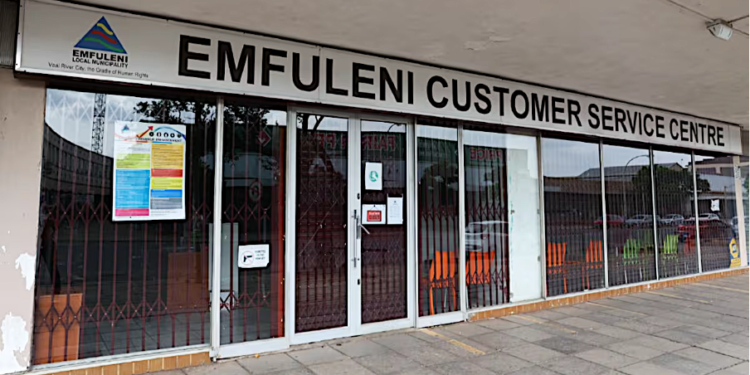By Fanelo Maseko | Loxion News
VANDERBIJLPARK – The Emfuleni Local Municipality in Gauteng continues to grapple with a deepening financial crisis, marked by years of poor revenue collection, unpaid debts, and weak governance.
The municipality has operated with an unfunded budget for three consecutive years, posting a staggering deficit of R987 million for the 2023/24 financial year. It also owes Eskom approximately R2.2 billion, placing it among the country’s most financially distressed municipalities.
Although Emfuleni was included in Eskom’s debt-relief programme, it has struggled to meet the programme’s compliance requirements due to ongoing financial instability. A massive 91% of its outstanding debt has been written off, yet the municipality remains under financial strain. The much-touted financial recovery plan has delivered little improvement, raising concerns about the sustainability of local governance and service delivery.
Audit Woes and Weak Governance
Emfuleni’s audit and performance outcomes reveal deep-rooted institutional weaknesses, particularly in financial management and accountability. The municipality continues to suffer from poor internal controls, unreliable financial reporting, and material misstatements in its financial statements — often requiring adjustments before final submission.
Due to a critical shortage of financial skills, Emfuleni relies heavily on consultants to handle key reporting functions. However, this dependency has yielded minimal improvements, with recurring irregular expenditure and weak accountability systems.
Despite receiving support from provincial and national structures, progress has been slow. Analysts say the absence of decisive leadership and strong governance discipline has worsened Emfuleni’s financial and operational instability.
Service Delivery on the Brink
Poor financial management has directly affected basic service delivery in Emfuleni. Revenue collection inefficiencies and ineffective debt recovery have led to delayed payments to key suppliers, including Eskom, threatening electricity and water supply to residents and businesses.
The municipality also faces major infrastructure challenges, with poor maintenance causing significant water and electricity losses. This further reduces revenue while lowering service quality. Additionally, weak project planning, budgeting, and contract management continue to hamper progress on critical infrastructure upgrades.
Accountability Deficit and Financial Misconduct
A lack of consequence management remains one of Emfuleni’s biggest governance failures. Investigations into financial misconduct, fraud, and irregular expenditure often move slowly or remain incomplete — allowing mismanagement to persist unchecked.
The Auditor-General has issued multiple material irregularity notices highlighting financial losses and non-compliance. Yet, the municipality’s response has been delayed and insufficient, undermining public trust and blocking efforts to recover misused funds.
Call for Urgent Intervention
Experts warn that without strong, coordinated intervention from local, provincial, and national government, Emfuleni risks further decline. A culture of transparency, accountability, and performance must be restored to stabilize finances and restore service delivery to residents.
The crisis at Emfuleni is not an isolated case — it mirrors the wider financial decay across many South African municipalities, where mismanagement, weak leadership, and corruption continue to erode the quality of life for ordinary citizens.


















